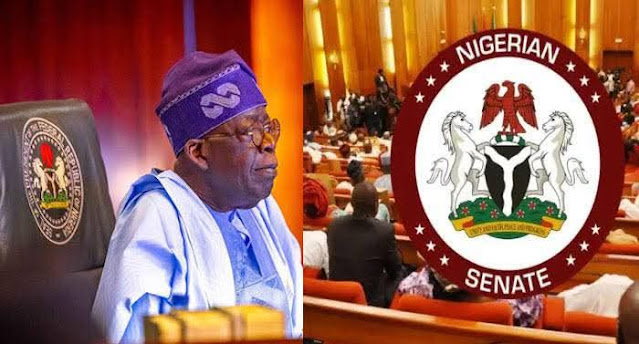In a pivotal move shaping Nigeria’s economic landscape, the Senate has officially approved President Bola Tinubu’s request for $21.5 billion in external borrowings for the 2025/2026 fiscal period. The decision, announced on Tuesday, signals a major step toward financing critical infrastructure, energy, and social development initiatives under the administration’s Renewed Hope agenda.
The borrowing plan, which forms part of the 2022–2024 borrowing framework but extends into the next budget cycle, is expected to fund projects across transportation, power, agriculture, education, and healthcare — sectors the government has identified as central to unlocking inclusive growth.
A Strategy for National Renewal
Senators supporting the move emphasized that the loans are largely concessional and will be tied to specific, performance-based outcomes. The funds are earmarked for priority projects such as the completion of ongoing rail networks, power grid modernization, irrigation systems for farming communities, and nationwide digital education initiatives.
“This approval isn’t just about debt—it’s about investment,” said Senator Solomon Adeola, chairman of the Senate Committee on Finance. “We are ensuring that these funds go where they’re needed most, with proper oversight and accountability mechanisms in place.”
Public Reaction and Economic Concerns
While some have raised concerns over Nigeria’s rising debt profile, the Tinubu government maintains that strategic borrowing is essential to revitalize a sluggish economy, create jobs, and attract foreign investment. Officials argue that the new debt is part of a broader economic recovery blueprint that includes domestic revenue expansion, subsidy reforms, and anti-corruption safeguards.
In a statement, the Ministry of Finance reiterated that Nigeria’s debt-to-GDP ratio remains within sustainable limits and that borrowed funds will be transparently disbursed and project-linked.
As implementation begins, all eyes will be on how effectively the Tinubu administration manages the new inflow of capital. With inflation pressures, youth unemployment, and energy challenges still lingering, the success of this borrowing strategy could play a defining role in determining both economic momentum and public confidence heading into 2026.


